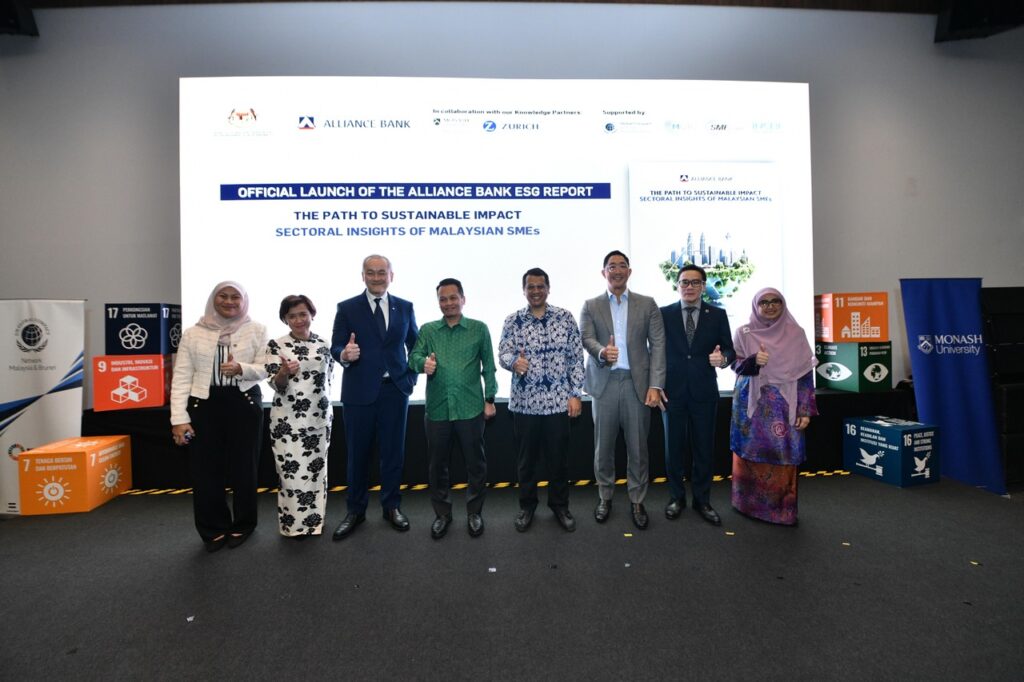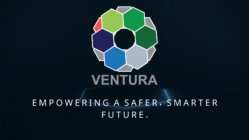Key Takeaways
- ESG Begins with Business Basics For many SMEs, the first step toward sustainability isn’t driven by regulation or global trends — it’s driven by survival. Whether it’s cutting electricity bills or improving production efficiency, cost-saving measures often evolve into sustainable practices. Alliance Bank emphasises this practical, bottom-line-first approach to make ESG relatable and actionable.
- The Real Barrier is Uncertainty, Not Resistance SMEs aren’t opposed to ESG — they just struggle to see its relevance. Alliance Bank’s strategy addresses this by demystifying ESG, replacing jargon with real-life examples and sector-specific guidance that focus on productivity, cost reduction, and innovation.
- Simple Changes, Big Impact Practical case studies — like recalibrating motor systems or compacting industrial waste — show how small, tactical moves can lead to meaningful ESG improvements. These stories ground sustainability in day-to-day decision-making, proving that ESG doesn’t have to be high-cost or high-tech.
- Tools That Meet SMEs Where They Are The PROGRESS Climate Assessment Tool empowers SMEs to self-diagnose their ESG maturity in simple language and get tailored roadmaps. Paired with Alliance Bank’s sustainability-linked loans, the tool incentivises and rewards real progress with better financing terms.
- Building an Ecosystem of Support Beyond banking, Alliance Bank positions itself as a connector — offering sector-specific playbooks, running workshops, and linking SMEs to partners. The bank’s philosophy of “Advocacy, Advice, and Answers” reflects a holistic, ecosystem-driven role in advancing sustainable business practices.
The Uncertainty Barrier
For many Malaysian SMEs, the idea of sustainability is met with hesitation. The issue isn’t resistance — it’s relevance. The buzzwords of ESG – environmental, social, and governance often feel detached from the gritty realities of managing cash flow, improving margins, or meeting tight delivery schedules.
But that’s precisely where Alliance Bank believes the conversation needs to shift — away from jargon and toward real-world impact. To do this, the bank has led efforts to make ESG practical, affordable, and, most importantly, beneficial to SMEs’ bottom lines.
Dr. Aaron Sum, Alliance Bank’s Group Chief Strategy and Transformation Officer said, “Most SMEs aren’t anti-ESG. They just don’t see how it connects to their business goals. The biggest barrier is uncertainty—not unwillingness.”
This insight has shaped the bank’s evolving approach: to create clarity, demonstrate tangible benefits, and make ESG actionable— starting with what SMEs already care about: productivity, cost, and opportunity.
From Compliance to Competitive Edge

One of the clearest indicators of changing attitudes came from the bank’s latest report, The Path to Sustainable Impact – Sectoral Insights of Malaysian SMEs (ESG 2.0 Report), which showed a notable rise in SMEs citing innovation as a driver for ESG adoption. This shift suggests that a deeper, more strategic mindset is emerging that links sustainability with process design, material efficiency, and even market expansion.
Dr. Sum noted that businesses are beginning to ask smarter questions earlier in their value chain. “They’re thinking, ‘If I have to meet these environmental standards anyway, why not use this chance to innovate — to design a product with less packaging, to streamline a process, to cut energy use?’ And when that thinking becomes embedded, it’s not just compliance — it’s a competitive advantage.”
But the mindset is only part of the equation. The real challenge lies in execution. For many SMEs, the journey stalls at the starting line, with questions like, “Where do I begin?” or “What does a sustainable operation look like in my industry?”
That’s where Alliance Bank’s practical interventions begin.
Simple Moves, Real Results
Rather than flood SMEs with theories, the bank showcases real, local examples — highlighting businesses that have made incremental improvements with significant returns.
One such example involved a manufacturer running high-capacity motor systems — a common setup in industrial operations. Like many, the company’s motors were operating at full load around the clock, regardless of actual demand. The fix? A modest retrofit to calibrate energy usage according to production cycles. This simple change led to a sharp drop in energy consumption — and immediate savings on the electricity bill.
In another case, a steel processing SME installed a compactor to compress lightweight shavings — previously considered unusable waste — into dense, recyclable blocks. The investment was modest, but the payoff was clear: reduced disposal costs and new income from material resale.
“These are not moonshot innovations,” Dr. Sum emphasised. “They’re smart, tactical moves that reduce waste and cost — while improving ESG performance. That’s the kind of pragmatism SMEs can relate to.”
A Compass for the ESG Journey

To turn intention into action, Alliance Bank developed the PROGRESS Climate Assessment Tool — a digital diagnostic platform built specifically for SMEs. Co-developed with the United Nations Global Compact, the tool guides businesses through a 30-question self-assessment covering climate impact, governance practices, and operational habits.
What makes it different is its tone and accessibility. “It’s built in layman terms,” said Dr. Sum, “because we wanted SMEs to use it, not feel overwhelmed.” Based on their responses, businesses receive a tailored report showing their ESG readiness level — from laggard to leader — benchmarked against peers in the same sector. More importantly, they get a draft roadmap, which includes recommended steps that align with their current stage of maturity.
“It’s a compass, not a GPS,” Dr. Sum explained. “It won’t give you a perfect A-to-Z path, but it tells you what direction to take next — measuring your energy usage or revisiting your waste management practices.”
The tool is dynamic, too. SMEs can reassess after implementing changes, track their progress, and upload evidence to support their advancements. This functionality isn’t just about self-reflection — it ties directly into Alliance Bank’s sustainability-linked loans.
As businesses mature in their ESG profile, they qualify for more favourable financing rates. “We’re transparent from the start,” said Dr. Sum. “If you’re at beginner level, you get standard rates. But if you can demonstrate real progress, you unlock better terms. It’s how we align financial incentives with environmental performance.”
Sectoral Playbooks and Local Proof
While the diagnostic tool provides structure, Alliance Bank understands that ESG solutions aren’t one-size-fits-all. Manufacturing, construction, and agriculture sectors have different motivations and risk profiles. The bank will be supplementing its efforts with sectoral playbooks, offering deeper, tailored insights backed by detailed case studies.
What sets these playbooks apart is their local grounding. “We’re intentionally spotlighting Malaysian SMEs who’ve done it — because it’s more relatable and believable,” said Dr. Sum.
Through focus groups, on-site interviews, and data mapping, the bank is documenting best practices across sectors — showing, for example, how manufacturers improve output efficiency, how construction firms manage compliance risks, or how agriculture players are exploring circularity.
These sectoral playbooks will be made available in the coming months, and will be released progressively.
The Power of Circular Thinking
Among the many ideas gaining traction is the concept of circularity — finding ways to reuse, repurpose, or regenerate resources that would otherwise go to waste. Dr. Sum pointed to BioLoop, a local agri-innovation company that uses black soldier fly larvae to process organic waste, producing compost and animal feed. In the recent Alliance Bank BizSmart Challenge, BioLoop was awarded the grand prize for its innovative eco-solution. BioLoop has also started serving larger corporates with their waste management needs.
“It’s the perfect example of circular thinking,” said Dr. Sum. “The SME gets free feedstock. The corporate reduces its waste costs. Everyone wins — including the environment.” These partnerships are part of Alliance Bank’s broader “beyond banking” strategy — where the bank acts as a financier and an ecosystem connector, linking SMEs to tax incentives, technical solutions, and even procurement opportunities.
A Role that Goes Beyond Finance
Underpinning all of this is a philosophy that Dr. Sum described as “Advocacy, Advice, and Answers.” The bank invests in advocacy through research, awareness-building, and collaborations with partners. It offers advice through tools, workshops, and diagnostics. It delivers answers through financing, service provider linkages, and curated ecosystems — complete with pre-negotiated discounts.
“We’re not pretending to be sustainability experts,” Dr. Sum admitted. “But we know how to bring the right people together — the credible partners, the right incentives, the practical steps.” Workshops are now a core part of this engagement, offered free to SMEs nationwide. Through them, business owners walk away not with theory but with an actual roadmap tailored to their operations.
Looking Ahead – ESG as an Enabler, Not a Cost
As more businesses begin to see sustainability through the lens of innovation and efficiency, Dr. Sum believes the narrative around ESG will shift even further.
“Ultimately, this is about competitiveness. The early adopters — the ones who rethink their processes, design leaner products, reduce waste — will lead their sectors.”
Dr. Aaron Sum, Group Chief Strategy & Transformation Officer,
Alliance Bank
As Alliance Bank continues building its ecosystem, from climate tools to playbooks to partner networks, the message becomes clearer: ESG is not a cost centre. It’s a source of strategic advantage—for those willing to engage with it. “SMEs don’t need a perfect plan,” Dr. Sum reflected. “They just need a place to start—and the right compass to guide them.”








